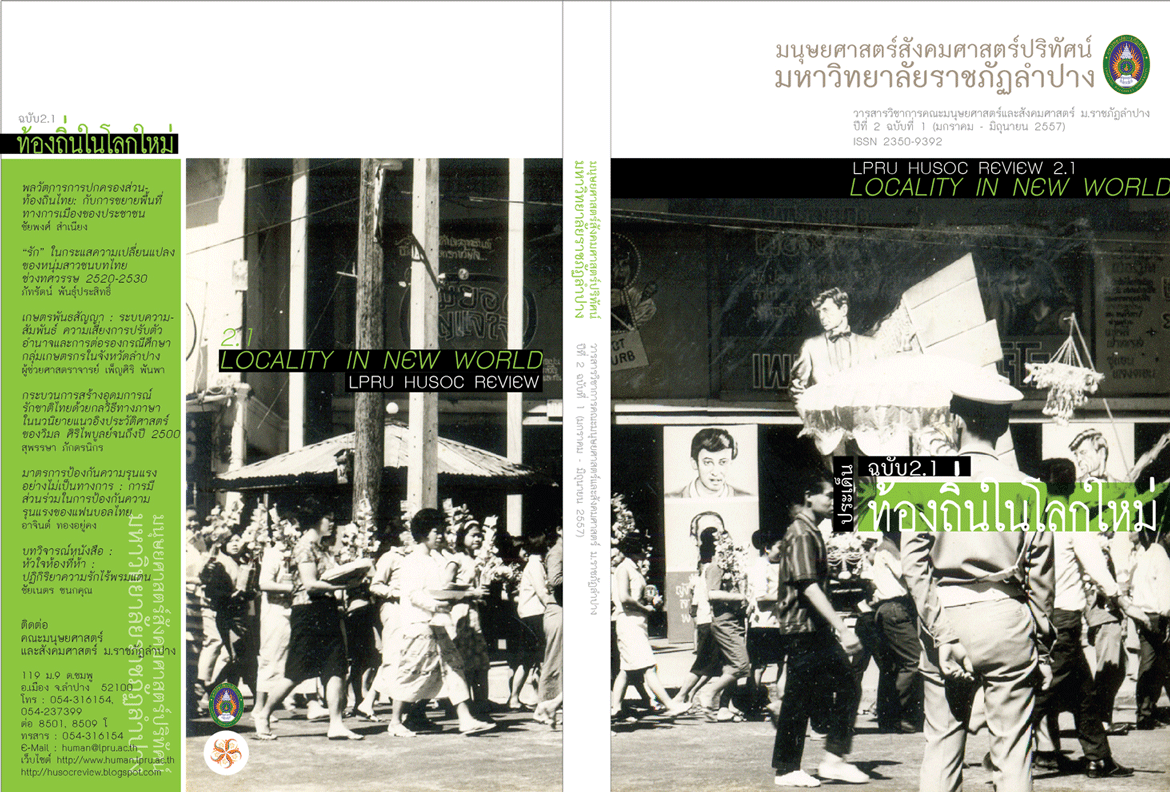พลวัตการการปกครองส่วนท้องถิ่นไทย : กับการขยายพื้นที่ทางการเมืองของประชาชน / The Dynamics of Local Government : a Closer Look at the Expansion of Political Sphere in Thailand
Abstract
การเข้าสู่พื้นที่องค์กรปกครองส่วนท้องถิ่นของประชาชนผ่าน“การเลือกตั้ง” ได้สร้างอำนาจต่อรองให้ประชาชน อย่างมหาศาล ผ่านความสัมพันธ์ของกลุ่มผลประโยชน์ต่างๆ เช่น กลุ่มเครือญาติ กลุ่มทรัพยากร กลุ่มทุน ฯลฯ ทำให้องค์กรปกครองส่วนท้องถิ่นเป็นพื้นที่ “เปิด” ที่ประชาชนใช้เป็น “พื้นที่” เพื่อสร้างสายสัมพันธ์กับรัฐแบบใหม่ได้ รวมถึงการที่มีการเลือกตั้งในระดับท้องถิ่นอย่างต่อเนื่องทำให้นักการเมืองท้องถิ่น ต้องสร้างความสัมพันธ์กับประชาชนอย่างหลากหลาย ทำให้ “การเลือกตั้ง” เป็นเครื่องมือที่สำคัญของประชาชนในการต่อรองกับนักการเมืองท้องถิ่น และการเลือกตั้งยังเปิดโอกาสให้ “คนหน้าใหม่” เข้าสู่พื้นที่ทางการเมืองอย่างต่อเนื่อง ทำให้การเมืองท้องถิ่นมิใช่พื้นที่ผูกขาดของกลุ่มบุคคลใดบุคคลหนึ่งThe public's entry into the political space of local administrative organizations through electoral success has given them massive bargaining power. The public has gained this through network building among interest groups including families and relatives, groups with access to natural resources, and capitalists and as a result, local administrative organizations have become an open space which people use to create new forms of relationships with the state. In addition, recurring local elections continue to build relationships between local politicians and the electorate at many different levels. Elections have thus become a political tool used in bargaining with local politicians. Elections also provide opportunities for newcomers to enter into the political space. This indicates that local politics is not monopolized by any one group and is instead open to all those operating within this context of network building. Local politics is thus a bargaining arena, and importantly is a space for people and self-government
In addition, local administrative organizations are highly flexible and are not as fixed or rigid as formal organizations or bureaucratic systems. In other words, this is a semi-formal organization equipped with innovations, and elected executives and members who are attached to the area. Such flexibility allows for a more responsive approach to the local people and hence, these are organizations operating for the people.



